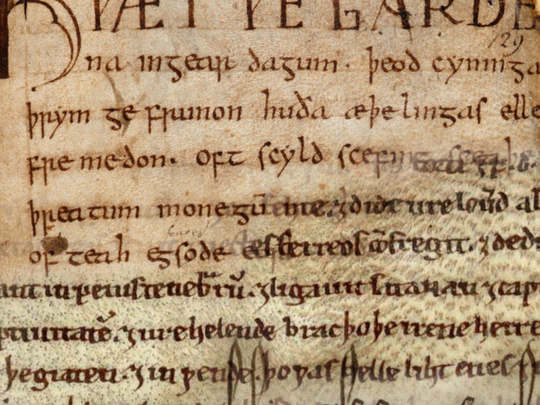
Another day, another linguistic bugbear held up for ridicule. This time, it’s the harmless, modest, blink-and-you-miss-it word “so”. What has this innocent syllable done to offend the British public? If you have been struggling to get through to the BBC recently it’s because their switchboard has been jammed with complaints about it.
Here’s Robert from Wakefield: “I have been increasingly irritated over the last couple of years by the increasing use of the word ‘so’ when prefacing a sentence.” (I know how you feel Robert, I’ve been increasingly irritated by the increasing use of the word increasing). And Kay from Belfast: “I don’t think ‘so’ is an appropriate word with which to begin a sentence.”
Related: Is the British art of understatement ever so slightly dying out?
As for Fergus from Glasgow, it’s practically ruining his life: “Every time I hear it, the hair on my neck rises and my teeth bare in a grimace”. They have a champion in Today presenter John Humphrys, who believes that “The misplaced ‘so’ has invaded everyday speech like some noxious weed in an untended garden.”
I think I may have a cure for this allergic reaction, which has now reached the leader page of The Times . But first, let’s look at the causes. Prime among them is what linguist Arnold Zwicky has called “the recency illusion “, a tendency to assume that things you have noticed recently are in fact innovations. Very often, they’ve been around much longer than you think, as this list of new-sounding old words shows.
Listeners are upset about a particular use of “so” as a discourse marker - a way to introduce a sentence, or link parts of a narrative. I doubt they’d complain about “so” used to mean “as a result of” - as in the sentence: “He hit me, so I called the police”. (It’s worth noting at this point that discourse markers are perfectly respectable grammatical widgets found in virtually all languages.)
The idea that the discourse marker form of “so” represents any kind of “invasion” can be swiftly dispatched. As linguist John McWhorter points out in an episode of the podcast Lexicon Valley, it’s mostly used in casual speech. Casual speech isn’t often written down, so it’s easier to fall for the idea that this a contemporary phenomenon - it doesn’t appear much in the historical record. But it does appear.
There’s a 1929 recording of a comedian Jack Osterman routine, for example, in which he says “So I said alright, we’ll go to the Ritz - so we walked in the Ritz, and we sat down.” That’s 88 years ago.
One place you can find casual speech written down is in passages of dialogue in novels. And, in Theodore Dreiser’s Sister Carrie, published 117 years ago, one of Carrie’s suitors asks , “so you lost your place because you got sick, eh?”
But the real clincher? How about a poem from the 10th century? Beowulf, the Old English epic, starts with the words Hwaet! We Gardena in geardagum. This has been translated as “What! We of the Spear-Danes in days-of-yore” - but, as McWhorter points out, “What”, although it is cognate with (etymologically linked to) Hwaet, makes no sense to modern English ears, and is therefore a poor translation. A better one, used by Seumas Heaney and others, is “so”- “So. The Spear-Danes in days gone by”.
If it’s good enough for one of the greatest works of English literature, why isn’t it good enough for John Humphrys, Kay from Belfast, and poor Fergus?
Related: Should France embrace gender-neutral words? Bien sur!
Part of the reason is that we tend to feel alienated from linguistic and cultural changes that occur after our young adulthood. Although “so” isn’t new, it’s possible there’s been an uptick in its use as a discourse marker (it would be very difficult to know for sure, since research on usage is often done by analysing large amounts of written material). A simpler explanation is that it has begun to appear in contexts - like BBC Radio - where, for cultural reasons, delivery used to be more formal.
It’s probably this that sticks out to John, Kay and Fergus. However they might try to justify their dislike of so linguistically - it’s inappropriate, ungrammatical, a “misuse” of the word - what they are really expressing is upset at a cultural change, one they are powerless to influence, and one future generations will not care about.
They trouble is, now they have noticed it, they will be hearing it everywhere. Spare a thought.
–Guardian News & Media Ltd












